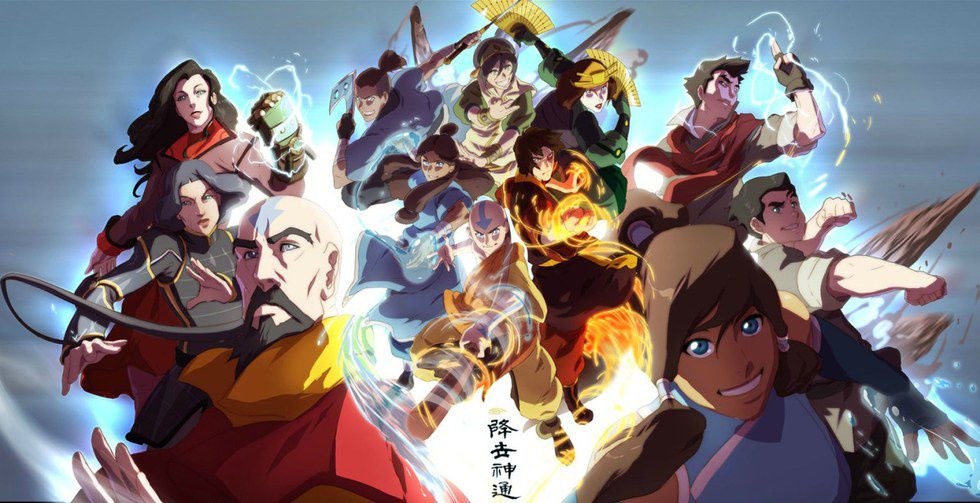It's been about a year and a half since the last episode of "The Legend of Korra" aired, but it and its predecessor, "Avatar: The Last Airbender,” are still some of the greatest shows ever made. They have an intriguing concept, great writing, and beautiful animation—and they're so feminist.
Not only do “Avatar” and “Korra” explicitly call out sexism, but they are also full of female characters: diverse, well-written female characters—something that is so frustratingly rare.
"Avatar" addresses sexism from the get-go. The opening scene introduces us to Katara and Sokka, right before they find Avatar Aang in the iceberg. One of the siblings' interactions goes like this:Sokka: “I knew I should've left you home! Leave it to a girl to screw things up!”
Katara: “You are the most sexist, immature, nut-brained—! I'm embarrassed to be related to you!”
In the very first scene, the writers have Katara call her brother a sexist. And she doesn't lay off after that. In the first season, the two get into multiple arguments, with Sokka saying something sexist and Katara consistently calling him out. And, eventually, Sokka learns that his perceptions of women are wrong, thanks to Katara and some hard-learned lessons from Suki and her Kyoshi Warriors.
Unfortunately, Sokka's not the only sexist Katara has to face. When she asks Master Pakku to train her in waterbending at the North Pole, Pakku refuses, saying that his culture only permits women to learn to heal, not to fight. Katara challenges him, mockingly asking if he is “'man' enough” to fight her. Though he is much more experienced in waterbending than she is, Katara stands her ground against him and endures attack after attack, finally delivering the goosebump-raising line, “You can't knock me down!”
For instance, Avatar Korra—a protagonist who is a woman of color—is confident (if not brash), muscular and powerful, as well as deeply opinionated and driven. But she also has her moments of weakness, frustration, vulnerability and even depression.
She cares deeply about the people around her and her duties as the Avatar, but she also has a quick temper and has a tendency to jump to conclusions, which sometimes ends up hurting her friends or getting her into trouble. And while Korra does make her mistakes, she fixes them, and she saves the world over and over.
The other female characters in both shows are just as well-rounded. They're extremely diverse, too, and not just racially. We have an age range from young girls like Ikki and Jinora to older women like Lin Beifong and Kya, all of whom get things done.
We have single moms (Toph, in "Korra"), married moms (Pemma, Suyin Beifong), imperfect moms (Poppy Beifong, Toph again), and moms who give up everything for their children (Katara, Sokka and Zuko's mothers). We have single women who focus on their careers (Lin Beifong), as well as women who are very interested in romance (Ty Lee, among others).
We have very feminine women (again, Ty Lee), and less feminine women (Smellerbee). Women who readily express their emotions (Katara) and women who don't (Mai), as well as women who are very emotionally unbalanced (Azula).
Shy women and confident women. Studious women and athletic women. Women who like men and women who like other women. Rich women, poor women. Polite women, rude women. Women who always look fabulous, and women who couldn't care less about their appearance.
Bending masters and nonbenders. Police chiefs and firelords, outlaws and bounty hunters. Antagonists. Heroes. Assistants. CEOs. Princesses. Prize fighters. Healers. Military leaders.
Because of “Avatar: The Last Airbender” and “The Legend of Korra,” women and girls can see themselves represented on TV. And everyone can see that women of all types, whether they set out to change the whole world or a only small part of it, can kick some serious butt.
These shows demonstrate that not all women are the same, but all women are important, all women can be strong, and all women deserve to have their stories told.




































